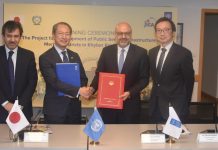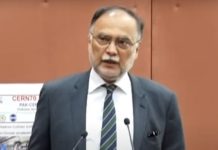Staff Report
ISLAMABAD: Minister for National Health Services, Regulations, and Coordination Abdul Qadir Patel on Monday said addressing the issues related to the increasing population was the need of the hour to promote sustainable and inclusive socio-economic development.
Addressing a seminar on the occasion of World Population Day, the minister said the government was committed to check the increasing population in the country by implementing global obligations for addressing poverty, health problems, illiteracy, and violation of human rights.
He said the government had given top priority to the subject of population and its development in order to address the matters related to the country’s population inclusively.
He expressed the hope that Pakistan would take every step possible to fulfill its international commitments and implement the National Action Plan on population while taking all stakeholders and implementing partners on board.
The minister highlighted the need for raising awareness about family planning among the citizens to control the exponentially rising population of Pakistan.
He urged the provincial governments, civil society organizations, and the private sector to join hands with the Federal Government to advance the agenda of population and development in the country.
He said the World Population Day was annually observed on July 11 and added that the resolution of population-related issues was possible by narrowing the gap between alarming disparities and biases in gender, age, disability, and class.
He said it was delighting that Pakistan and other member countries of the United Nations were commemorating World Population Day, an annual event since 1989, to highlight the significance of population-related matters and issues.
He said the theme of World Population Day 2022 “A world of 8 billion: Towards a resilient future for all – Harnessing opportunities and ensuring rights and choices for all” was pertinent as in November 2022, the world population would reach the 8 billion mark.
He said there was a need to work together very closely to achieve teh Agenda 2030 by anticipating and understanding the way the population was changing.
“This is possible if we develop unique responses based on data to mitigate potentially negative effects to fully harness the opportunities that also come with demographic change.”






